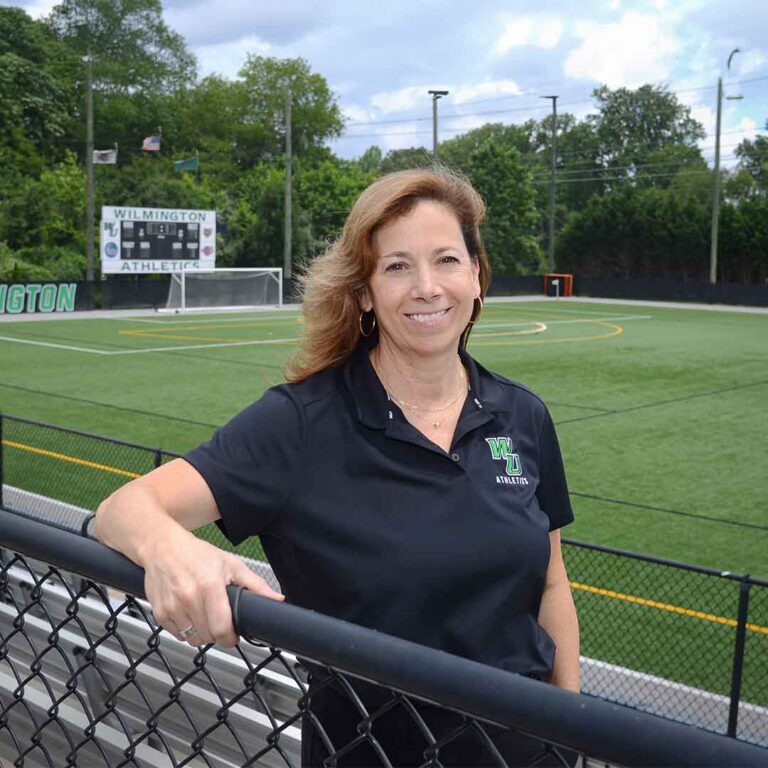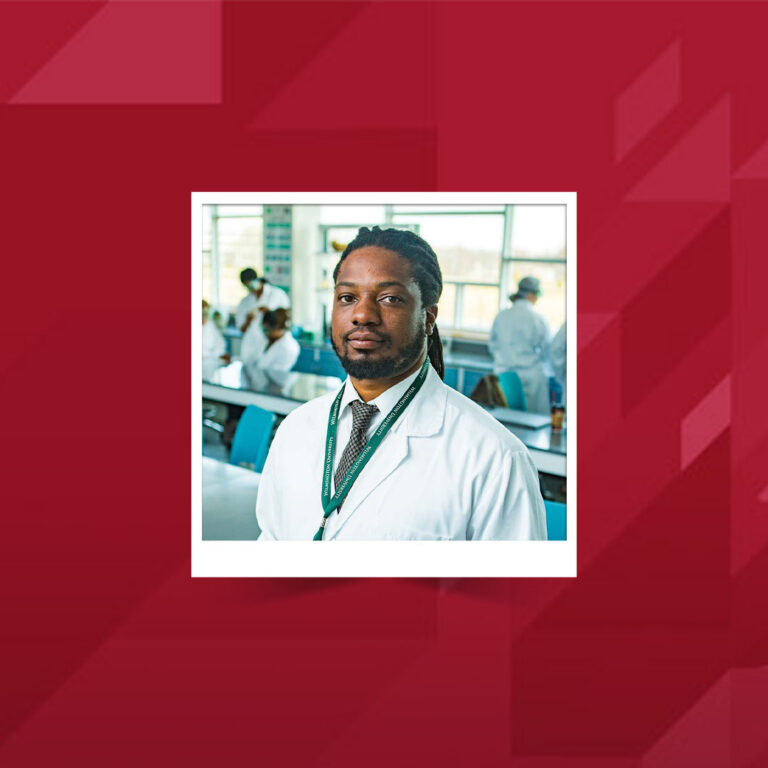Bringing Justice Home
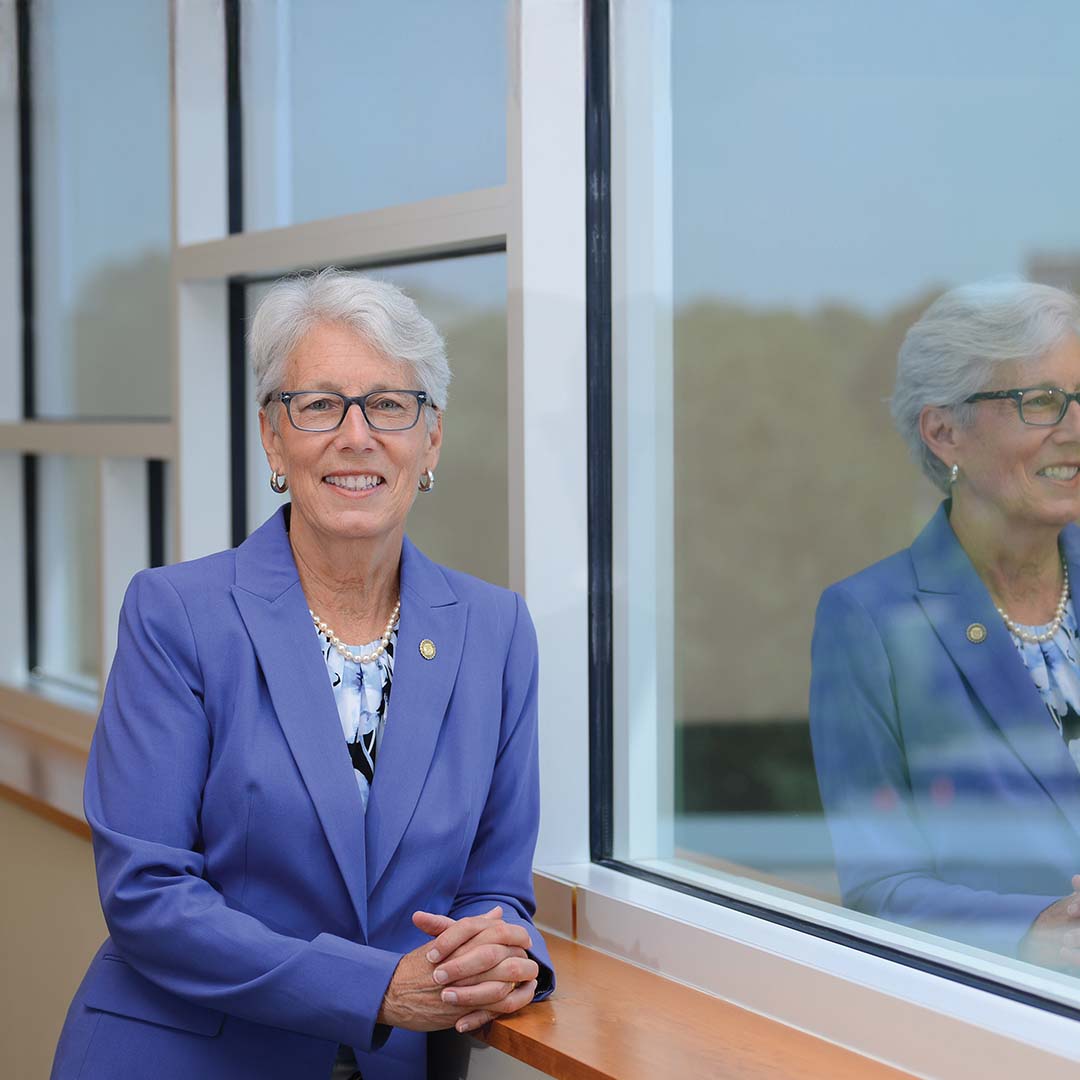
Guided by experience and purpose, Wilmington University School of Law’s new dean, The Honorable Jan R. Jurden, is building a legal community that’s ready to serve.
Judge Jan R. Jurden has never been one to shy away from uncharted paths. With a career spanning nearly four decades, she has broken barriers and elevated the legal profession in Delaware. Now, as dean of the Wilmington University School of Law, she is poised to shape the next generation of legal minds with the same purpose and integrity that have defined her journey.
Jurden’s résumé speaks volumes — rich with published works that reflect a commitment to justice, public service, and judicial ethics, influencing legal thought well beyond the bench.
But her body of work is only part of what defines her. At the heart of Jurden’s journey is a respect for humanity and a drive to serve — qualities imparted long before she stepped into a courtroom. Those values, she says, were instilled in her by her parents. She credits them with shaping her sense of purpose and perspective.
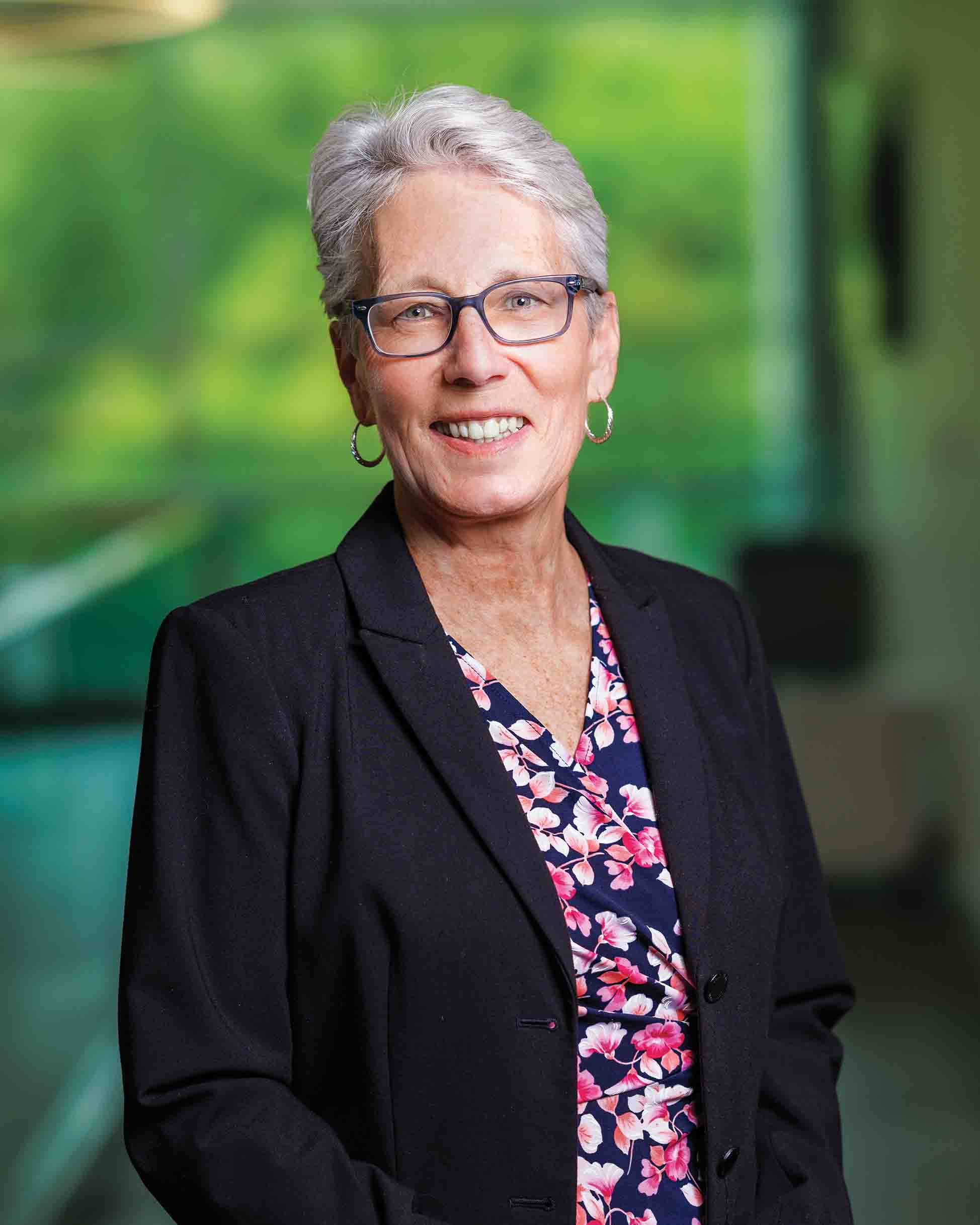
“My father tried to enter World War II before graduating from high school,” she says. “Even though he was an only son and had a disabled father and could’ve been deferred, he wanted to do it.”
Her father, John R. “Jack” Jurden, graduated from Pennsylvania’s Allentown High School in 1944 and immediately enlisted in the U.S. Army, serving as a member of the 77th Division in the Pacific during the war. He married Faye Werley in 1952 and, after moving to Wilmington, began a 39-year career as The News Journal’s beloved editorial cartoonist — a role that made him a local legend. His work earned a place on the walls of presidents and public officials, including former President Joe Biden. When his daughter, Jan, arrived at the Delaware Legislature for her confirmation hearing, she saw one of her father’s cartoons — depicting the Legislature itself — hanging on the wall. His presence was unmistakable.
So, too, was the quiet strength of her mother, Faye, whom she calls “intrepid.” Faye stepped away from professional life to focus on raising Jan and her sister, Jenifer, also a talented cartoonist. Faye, an accomplished pianist, later re-entered the workforce and faced a world unaccustomed to ambitious women. She was denied credit in her name and often found herself the only woman in meetings aside from administrative staff. But she persevered, taking on demanding roles in corporate and nonprofit settings. To her daughters, Faye was a trailblazer — someone who redefined what was possible, regardless of gender. “I used to see my mother get ready for work, and I thought she was so brave,” Jurden says. “She went to college at a time when the two acceptable majors for women were music and nursing. She had to learn a lot of skills, and she did.” Faye was a Music major at Moravian College, where she was also president of her senior class.
From her father, Jurden inherited a sense of civic responsibility and the importance of expression; from her mother, she drew grace and determination.
“I was the youngest child of two,” says Jurden. “I was fixated on what they were up to because I was the baby. So, I think I absorbed a lot of courage by watching them both take risks.”
Turning ‘Green’
Jurden entered the army at 17, rising to the rank of sergeant and earning multiple commendations, including the Meritorious Service Medal, the Army Commendation Medal, and Soldier of the Year — three times.
Her deployment was formative, but initially frightening. “Talk about stepping off a cliff,” she says. “I signed up before senior year, made it through basic training, and landed in Germany for my permanent assignment on New Year’s Eve. It was cold and dark, and they threw me into a room. I was so homesick and scared. I remember thinking, ‘What have I done?’”
The next morning, a soldier who had helped process her noticed she was alone. “He took me around, showed me everything, and became my first friend there.”
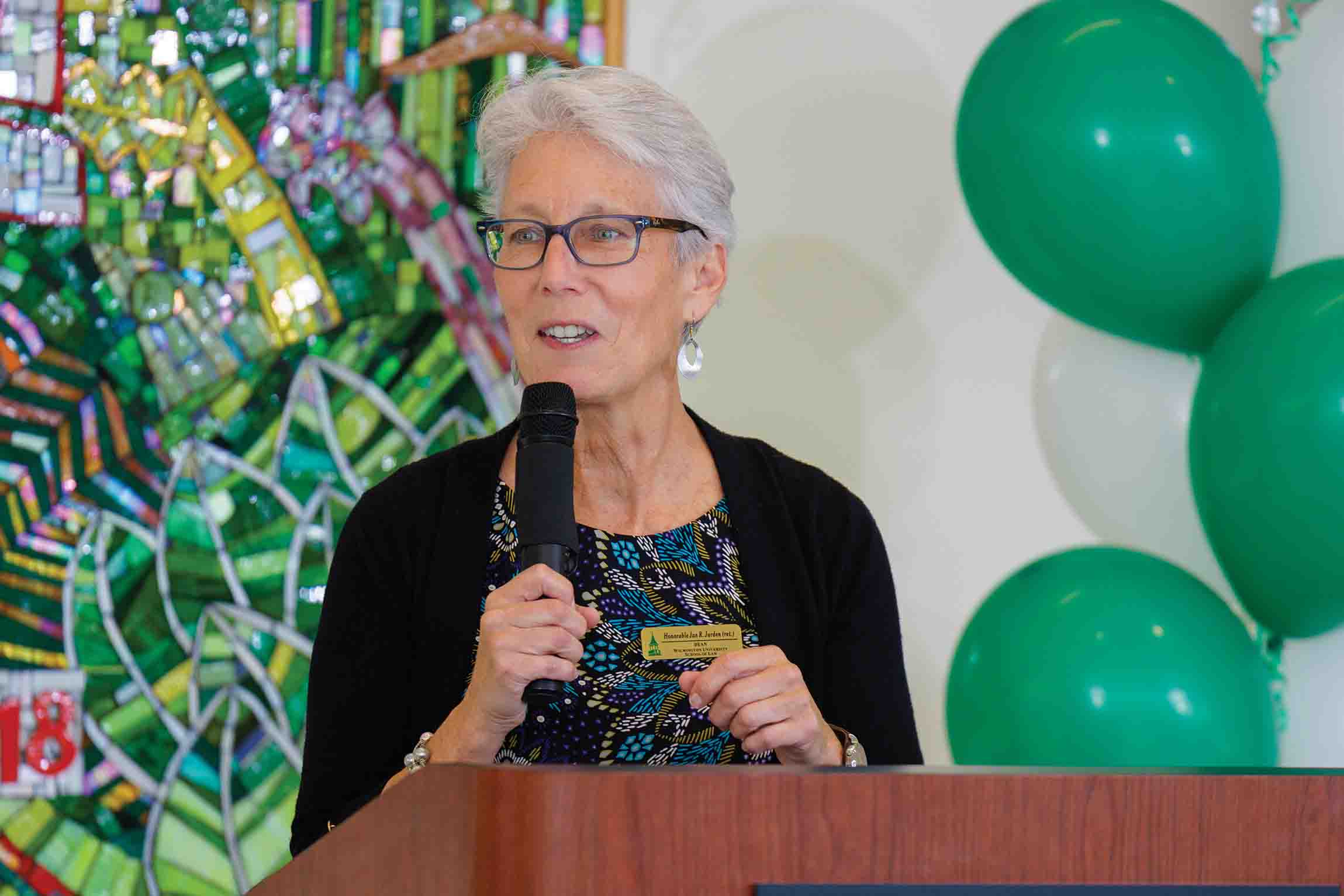
Her time in the military cemented her respect for humanity. She had come of age during Delaware’s school desegregation years, when tensions ran high. “There were some ugly incidents during desegregation,” she says. “You had two groups of kids who had never socialized suddenly thrown together in their senior year.”
The army presented a different model. “Everybody was ‘green,’” she says. “It didn’t matter if you were a man or a woman or what race you were. Everyone had the same opportunity, and that felt right to me.”
Although there were few women in her company, the diversity of the unit — soldiers from across the United States and the Philippines — left a lasting impression. “It was a wonderful experience,” she says. “One I never would’ve had if I hadn’t left Wilmington.”
Jurden spent a year in college while stationed overseas, then returned to study at the University of Delaware for another year. She did well, making the dean’s list, “but it was too big,” she says. “I needed a smaller environment after being in the army.”
She transferred to Muhlenberg College in Allentown, drawn by its intimate setting and deep family roots — her parents had both grown up there, and her grandparents had lived there until their passing. Jurden didn’t go home much, instead settling into life as a student-athlete playing varsity field hockey and lacrosse. She graduated summa cum laude with a B.A. in Political Science.
At Dickinson School of Law, Jurden graduated in the top 10% of her class. There, her leadership, advocacy skills, and academic excellence laid the groundwork for a stunning career.
Where Compassion Meets Law
Jurden’s commitment to justice was shaped in the classroom and through personal experience. “When I was in the army, I watched somebody get abused by their significant other,” she says. “I had no exposure to that until then, and I was horrified and traumatized.”
The experience stayed with her.
After law school, Jurden clerked for Judge Keith B. Quigley, then the president judge for two Pennsylvania counties and the equivalent of a Superior Court judge in Delaware. In 1987, she joined the Wilmington firm Young Conaway Stargatt & Taylor, LLP as a summer associate. With the firm’s support, she took on pro bono domestic violence cases early on. She became a partner at Young Conaway in 1996 and was appointed to the Delaware Superior Court five years later.
Mental health had always mattered deeply to Jurden, and she can point to the moment that galvanized her resolve: “I’d been on the bench for years,” she says, “and a colleague came in, and he threw this file on my desk, and he was very frustrated. He said, ‘I don’t know how we expect people to successfully complete a probation when they’ve got an addiction and serious mental health issues.’ I said, ‘I feel the exact same way. We keep seeing the same people.’ It was a revolving door.”
That moment sparked the idea that would ultimately become Delaware’s Mental Health Court — the state’s first felony-level mental health court. She proposed creating a specialized court for individuals with mental health and addiction issues, involving experts, early intervention, tailored treatment plans, ongoing monitoring, and regular court check-ins tied to specific benchmarks, including medication compliance.
Then-President Judge James T. Vaughn Jr. gave her the green light — but with a caveat: she’d have to launch the court without any new resources.
That could’ve been a dealbreaker. But for Jurden, it was a beginning. “This is the story I love,” she says, “because it shows what Delaware is capable of.”
She called then–Attorney General Beau Biden. (He died of brain cancer in 2015.) “He was totally in favor of this,” she says. “And I reached out to the public defender’s office. We sat down at a table and worked out how it would work. We also had the buy-in of both the prosecution and the defense. We got the treatment providers on board. Rita Landgraf was the secretary of the DHSS (Delaware Health and Social Services) at the time. Everybody came together. Before you knew it, we started it.”
Launched in 2008, Delaware’s Mental Health Court has become a lifeline for people with addiction and untreated mental illness, proving that compassion and collaboration can reshape the criminal justice system.
“Dean Jurden’s legal expertise and thoughtful leadership are inspiring our law students, faculty, and staff, and she is enriching the School of Law’s already strong learning environment.”
—Dr. LaVerne Harmon
In 2015, Jurden made history as the first woman to serve as president judge of the Superior Court of the State of Delaware. Over the next decade, she expanded access to justice and championed reforms for individuals with mental health and substance use challenges caught up in the system.
When the pandemic hit in 2020, new concerns emerged. One of the most troubling was a sharp rise in domestic violence. “Strangulation cases went through the roof,” says Jurden. “It was awful: people out of work, in close quarters, nowhere to escape.” (According to supremecourt.gov, non-fatal strangulation increases the risk of homicide by 800% at the hands of the same partner.) She served on the Domestic Violence Coordinating Council for several years and remains committed to strengthening early intervention because, without it, the cycle of abuse too often goes unchecked.
These challenges drove Jurden’s work inside and outside the courtroom. She co-founded the Sisters in Success program for incarcerated women, chaired the Criminal Justice Mental Health Special Needs Committee, and served on the Family Justice Center Steering Committee — initiatives grounded in her belief that the justice system must hold people accountable while also helping them heal.
In addition to her judicial work, Jurden has long shared her knowledge in the classroom. She began teaching in 1988 at what was then Wilmington College, where she led courses on Legal and Ethical Issues in Health Care. Over the years, she has taught at Dickinson, Widener University School of Law, and the University of Delaware.
Coming Full Circle
Jurden’s distinguished career has been marked by a long list of honors and recognitions, including induction into the Delaware Women’s Hall of Fame and the Delaware State Bar Association’s Women’s Leadership Award. Yet what endures most is the impact she’s had as a mentor, supporting others as she was once supported. Whether walking a young lawyer through their first trial or helping shape judicial ethics policy, she has consistently made space for others to thrive, never forgetting those who did the same for her.
As dean of the Wilmington University School of Law, she is bringing her commitment to public service full circle. The school’s mission to provide accessible, real-world legal education aligns with her lifelong focus on justice, empathy, and practical reform. She’s not just building a law school — she’s cultivating a legal community focused on serving the public and advancing justice where it’s needed most.
“Dean Jurden leads with her heart and mind, and she has the integrity, humility, and commitment to service that we value,” says Wilmington University President Dr. LaVerne Harmon. “Her legal expertise and thoughtful leadership are inspiring our law students, faculty, and staff, and she is enriching the School of Law’s already strong learning environment.”
Jurden is honored to work alongside President Harmon and the University’s Board of Trustees, whose shared vision and support have made it possible to turn bold ideas into meaningful progress.
“The longstanding mission of Wilmington University — and the law school — is to teach students and get them out into the community,” Jurden says. “We want to serve the surrounding area by producing students who are ready to go, no matter what profession they choose.”
Accessibility and affordability are key, hence the competitive tuition, she says. “Because it shouldn’t just be people with infinite wealth who get to go to law school.”
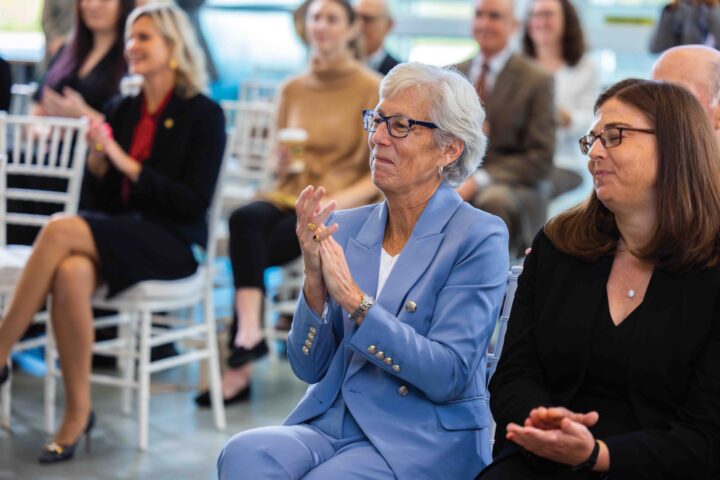
WilmU’s law students will be ready to practice law and think like lawyers the moment they graduate, she says, and bar passage is critical. “They need to pass the bar exam. And we’re going to make sure they’re ready to take that test. They’ll be tested in all sorts of different formats. We’ll test them the way the bar will test them.”
She acknowledges that this focus can raise eyebrows. “‘Teaching to the test’ gets a bad name,” she says. “But when I went to law school — and I think this is still true for a lot of schools — you learn the black-letter law, which is the statutes and rules. You spend an awful lot of time talking about one or two cases for weeks. You go through the Socratic method. It’s fascinating, but not all of it is very useful when you get into private practice or public service.”
Instead, WilmU’s School of Law aims to equip students with what Jurden calls “the nuts and bolts.” That means combining deep legal knowledge with rigorous, practical training. “We are offering a great education for people who want to come out ready to do just about anything they put their mind to.”
For her, the law is more than a profession — it’s a guiding force in a democratic society. “It’s the law that is promulgated in a careful democratic process,” she says. “It’s the guiding light. It’s how we live. It’s the norms that are enshrined in our laws, statutes, and regulations. It’s the Constitution — the document that formed our government, defined how we wanted to be ruled, and established a balance of powers and checks and balances.”
In that system, lawyers play a crucial role. “Lawyers and lawsuits become necessary to make sure the rule of law is followed,” says Jurden. But in Delaware — and across the country — she sees a growing gap. “I’m concerned that we don’t have enough homegrown lawyers who want to stay and open up practices in their communities.”
“I hope my journey encourages others to lead with kindness and respect, to work hard, and to help clear the way for those who follow,”
— Dean Jan R. Jurden
Delaware is rightly known as a national hub for corporate and commercial law. “We’ve become such a haven, in a good way, for business, given how many Fortune 500 companies are incorporated here and our reputation for excellence in the Court of Chancery,” says Jurden. “But people need good, affordable lawyers, and we want to supply those lawyers.”
That community focus is at the heart of the Wilmington University School of Law. “That’s not our only focus, but it’s a huge one,” she says. “Because there comes a point where, if you have a huge corporate bar, that’s wonderful for the state. But then, what about somebody who has a family court case and wants representation?”
Jurden is concerned about the lack of legal representation in one of the most personal and emotionally charged areas of law. “Over 75% of family court litigants are self-represented,” she says.
The Fairness for All Task Force report from the Delaware Judiciary confirms that figure. “In my way of thinking, they carry the most precious jurisdiction there is: your children, your marriage,” says Jurden. “It’s emotional. And to not have legal representation because you can’t afford it — in a court of that magnitude — is disturbing.”
Individuals attempting to represent themselves must navigate complex legal procedures independently. The courts offer self-help centers, forms, brochures, and hotlines, but those tools don’t make up for the experience and training a lawyer brings. People recognize the need for legal assistance; many can’t afford it.
“We also need local real estate lawyers — not huge commercial firms, we’ve got that already,” Jurden says. “But we don’t have what you might think of as your local lawyer. There are some smaller firms, which is great. They’re not priced out of the market. But the average citizen can’t afford $600, $700, or $800 an hour for legal representation.”
That’s where WilmU comes in. “We provide legal education that is accessible and affordable,” says Jurden.
“But also, we train lawyers to serve a wide range of clients. They’re going to know the black-letter law. They’re going to have been rigorously tested. They’re going to pass the bar. And they’re going to be ready to go,” she says. “They’ll be confident representing all kinds of people, not just corporations, and they will serve all three Delaware counties. They will take what they learn and apply it to every situation. Our grads will make a difference.”
Jurden feels a sense of renewal when she meets new law students. “I’ve come from 24 years of having a wonderful career as a judge and loving it, though I’ve seen a lot of the horrible things that can happen to people. It wasn’t always uplifting.”
But at Wilmington University, she says, “I’m reminded how much good there is and how much promise there is in the world.”
She had offers from various firms after retiring from the bench. She chose WilmU. Calling this deanship her final professional chapter, she says she feels privileged.
“I hope my journey encourages others to lead with kindness and respect, to work hard, and to help clear the way for those who follow,” Jurden says.
She knows her sense of purpose can be traced back to two special people.
“I think if they were here, my guideposts, my mom and dad, would say I’m exactly where I belong.”
— Maria Hess
Want to read more in-depth stories? Explore our latest magazine articles.


